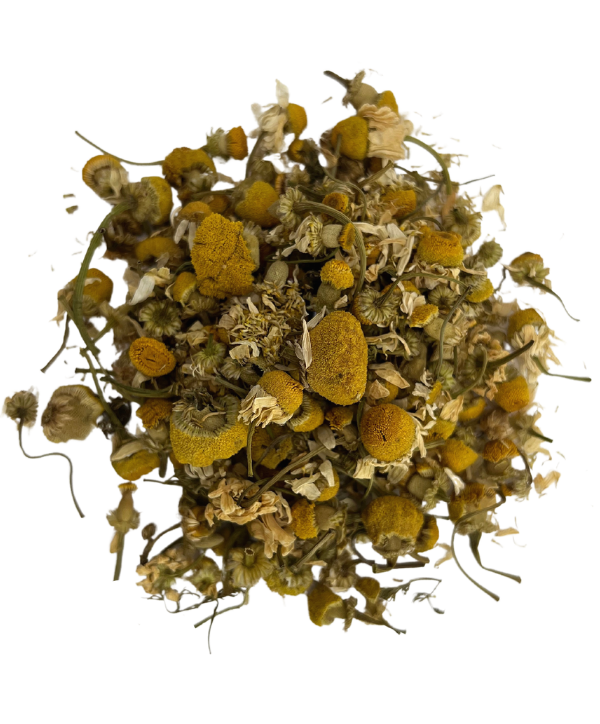What is Chamomile ?
The potency of various chamomile teas varies, with some containing significantly more chamomile than others. The more potent teas are also more likely to cause side effects in people who are vulnerable to them. Consequently, it is safest to start with a low dosage and work up to larger doses slowly.
Chamomile contains chemicals called flavonoids. These flavonoids are a type of nutrient present in many plants, and they play a significant role in chamomile’s medicinal effects.
Researchers are not sure yet what other chemicals are present in chamomile specifically and account for its benefits.
The potential benefits of chamomile tea, for which there is the most evidence, include:
1. Reducing menstrual pain
Several studies have linked chamomile tea to reduced severity of menstrual cramps. A 2010 study, for example, found that consuming chamomile tea for a month could reduce the pain of menstrual cramps. Women in the study also reported less anxiety and distress associated with period pain.
2. Treating diabetes and lowering blood sugar
Again, some studies have found that chamomile tea can lower blood sugar in people with diabetes. Research does not show that chamomile is a viable substitute for diabetes medications, but it may be a helpful supplement to existing treatments.
Similarly, a 2008 study of rats found that consistent consumption of chamomile tea might prevent blood sugar from increasing. This effect reduces the long-term risk of diabetes complications, suggesting that chamomile could improve diabetes outcomes.
3. Slowing or preventing osteoporosis
Osteoporosis is the progressive loss of bone density. This loss increases the risk of broken bones and stooped posture. While anyone can develop osteoporosis, it is most common among post-menopausal women. This tendency may be due to the effects of estrogen.
A
4. Reducing inflammation
Inflammation is an immune system reaction to fight infection. Chamomile tea contains chemical compounds that
5. Cancer treatment and prevention
Some studies suggest that chamomile tea may target cancer cells, or even prevent those cells from developing in the first place. However, research so far is inconclusive, and scientists say more work is needed to prove chamomile’s anti-cancer claims. Also, most research has looked at clinical models in animals, not humans.
A
6. Helping with sleep and relaxation
Chamomile tea is widely thought to help people relax and fall asleep. Few clinical trials have tested this, however.
In one review of the current evidence,
In a study using rats, chamomile extract helped sleep-disturbed rodents fall asleep. Many researchers believe that chamomile tea may function like a benzodiazepine. Benzodiazepines are prescription drugs that can reduce anxiety and induce sleep. Some research suggests that chamomile binds to benzodiazepine receptors.
A review looking at the
7. Treating cold symptoms
Anecdotal evidence and
8. Treatment for mild skin conditions
A
The following groups should avoid chamomile unless advised otherwise by a doctor:
- People with a history of severe allergies, particularly to pollens: Chamomile may be contaminated with pollen from other plants so can cause an allergic reaction.
- People who have previously had an allergic reaction, even mild, to chamomile products: They should avoid chamomile, as allergic reactions can get worse with time.
- Infants and very young children: Chamomile tea, similarly to honey and some other natural products, may be contaminated with botulism spores. Most healthy adults can fight off the infection, but infants may not be able to. Many doctors recommend infants and young children avoid honey, and they should also avoid chamomile products.
It is also not safe to use chamomile as a substitute for proven medical treatments. If someone is taking any medications, they should ask their doctor about potential interactions with chamomile tea.
How to prepare Chamomile ?
1. Basic Fresh Flower Chamomile Tea
Ingredients:
- 1 handful of fresh chamomile flowers (increase petal amounts for stronger tea)
- 8 ounces boiling water
- 2 apple mint leaves OPTIONAL
Instructions:
1. Harvest the fresh flowers by removing the entire flower head from the stem. Rinse the chamomile flowers in warm water and pat dry. Chamomile tea is best made using freshly harvested flowers. If necessary, it is possible to store flowers in the refrigerator for up to 48 hours. Wrap the petals in a wet paper towel and store in an airtight container.
2. Boil water in a tea kettle or large pot on the stove. Infusion tea kettles are the best option for fresh flower teas since they have built-in devices to keep the petals separated. Alternatively, you can use another infusion device such as a tea ball or cheesecloth as a makeshift tea bag. Always use pure or spring water and not hot tap water when brewing tea to preserve flavors.
3. Place flower petals in an infuser and let the tea steep in the kettle or pot for 5 minutes.
4. Remove the flower petals and optional mint leaves before pouring into a teacup. Enjoy!
1This product has not been evaluated by the Food and Drug Administration.” This product is not intended to cure or treat any disease. “
Signature Tea is a Luxury tea brand that offers the finest experence with consuming tea. While our signature blends have amazing benefits, it is not a food substitute. For maximum health benefits it should be used along side a healthy balanced diet. People who are iron deficiant should not drink tea if you have low iron levels, excessive tea intake may exacerbate your condition.

Tea Subscriptions
Signature Luxury Teas offers you three exclusive Memberships. Receive a monthly tea party in the comfort of your home! Fresh, Loose-leaf Teas for Your Health & Wellness!
